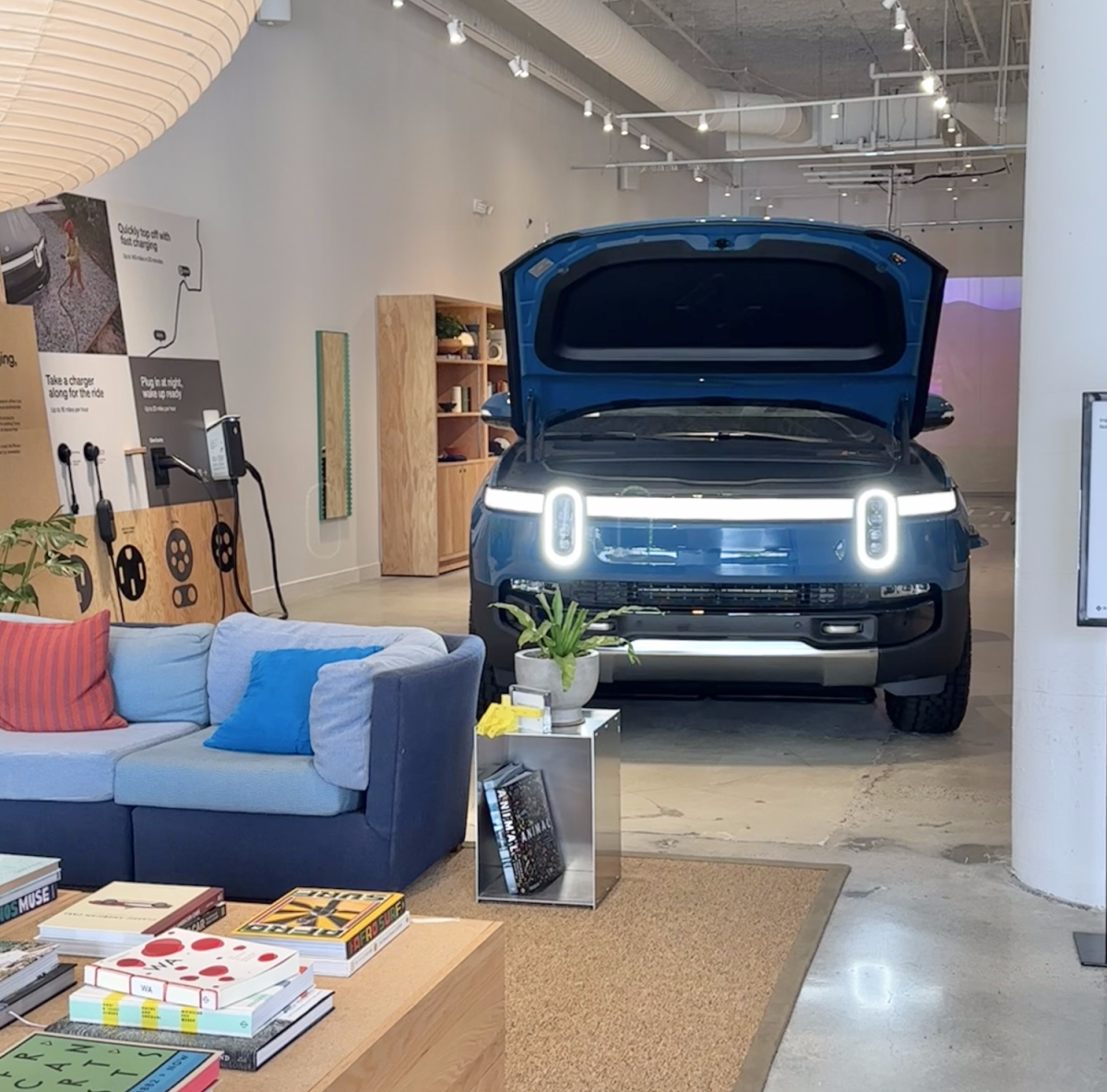After announcing the delayed construction of their $5 billion factory in Stanton Springs, Georgia, in early March, the electric vehicle manufacturing company Rivian was met with resistance from the Georgia community. Rivian has said they are working to maintain their planned factory’s site and preparing the land for construction.
Before the delay, runoff from the site frustrated some Georgians living near the factory along Highway I-20. In March, the company announced it was pausing before vertical construction had begun.
“There’s no doubt it’s disappointing that they’re delaying, but they’re dealing with market forces and trying to get the R2 and R3 to the market quicker than they would have been able to do by building the plant,” Governor Brian Kemp said in a press conference after Rivian’s announcement. “I understand the business case that they made by doing what they’re doing. I don’t necessarily like that but I understand it.”
Kemp said it’s not pleasing to hear about the delay, but that the state is in “a really good place,” and still under contract with Rivian.
“For us it’s disappointing,” Kemp said. “We were looking forward to them going vertical and building the first R2 here. But, everything [Rivian is] telling us [says] they’re still committed. We honor our commitments in our state and we’re gonna do that in regards to the site and we’re expecting the company to honor their commitments as well. So we’ll continue to work with them and make sure they’re educated on that issue.”
Rivian maintains that Georgia still plays an important role in the company’s future. They have made other developments in Georgia, including their showroom in Ponce City Market. Stanford Davis works at the Ponce Showroom and says he admires Rivian’s commitment to sustainability.
“The Ponce City Market Space used to be a garage, but now it’s the Rivian,” Davis said. “This is just like the [showroom] in Chicago. The hotel went uninhabited for 10 years until Rivian repurposed it. It’s really great working for a company that is sustainable and [works to] make sure we have a long life here.”
Aside from repurposing buildings, Rivian has committed to using sustainable materials in their showroom and vehicles.
“A lot of our space here at Ponce City Market is made from recycled parts, like recycled ocean plastic, recycled paper, reinforced aluminum and steel,” Davis said. “Our shirts are made out of recycled cashmere wood and oyster shells. A lot of sustainable parts were made to create this space as well as our vehicles.”
Rivian has also committed under its lease to manage stormwater and comply with state and federal environmental regulations.
Rivian has been provided with land, tax breaks and other incentives valued at $1.5 billion by state and local leaders. However, these incentives only apply if Rivian stands to build the plant and hire a projected 7,500 workers.
Advanced Placement (AP) Economics teacher John Cowan says that a large plant like the Rivian one employing so many local workers will increase spending and grow the local economy.
“It comes down to the idea that any local government, any kind of area, wants to bring new jobs to an area because jobs create a source of income for someone [that] becomes income for many other people,” Cowan said. “The new workers that are attracted to this area or maybe hired on and have a higher pay than they did before, they’ll go out and they’ll spend their paychecks on other local businesses who will then benefit from that.”
This economic growth, Cowan said, is a possible motivation for the government incentives given to Rivian to build their plant and expand into Georgia.
“So while it may seem unfair or odd for a government to give financial assistance or a [tax] discount to a profit-seeking business, it can be mutually beneficial for both parties if that business is successful and brings in new jobs and then those jobs become economic growth for the community at large,” Cowan said.
Aside from just the economic benefits Rivian brings to Atlanta, sophomore Taryn Thompson, a member of Midtown’s Earth and Sustainability Club, said she is excited to hear about Rivian’s commitments to sustainability.
“I find it really cool that they are bringing all of this eco-friendly business to Atlanta,” Thompson said. “I’ve heard how [Rivian] doesn’t just make sustainable electric cars, but they use sustainable energy, make wind [turbines] and things like that. I feel like a company like that coming to Atlanta and Georgia will have a good impact on our community and environment.”








